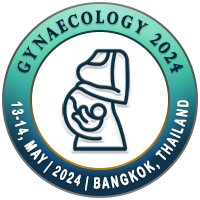
Amanur Rasul Md. Faisal
Dhaka Medical College, BangladeshTitle: Pregnancy related acute kidney injury: A multicenter prospective observational study from Bangladesh
Abstract
Background: Acute kidney injury (AKI) is one of the most challenging and serious complications of pregnancy which imposes a heavy burden of maternal morbidity and mortality if its diagnosis and treatment are delayed.
Objective: This prospective study intended to determine the frequency, etiology and outcomes of the patients of pregnancy related acute kidney injury (PRAKI) in different tertiary care hospitals in Bangladesh.
Methods: This was a prospective study of patients with pregnancy related complications leading to acute kidney injury admitted in selected departments of different tertiary care hospitals in Bangladesh for a period of one year (October 2018 to September 2019). Patients were included in this study who were healthy previously and developed acute kidney injury (serum creatinine >70.72 mmol/l) due to pregnancy related complications. Recruited patients were monitored after 3 months with a view to exclude chronic kidney disease.
Results: A total of 351 patients with pregnancy and puerperium were observed, of these patients studied, 34 (9.2%) had pregnancy-related AKI. In 32 patients who completed the study, the mean age was 27.2±6.2 years. There were more subjects belonging to the rural area (68.8%) and nineteen (59.4%) of patients were below primary level of education. Most of the study subjects from lower socioeconomic status (56.2%). Twenty-one (65.5%) patients were multigravida, and mean parity of the patients included in this study was 1.7±0.8. Nineteen (59.4%) patients did not receive any antenatal care. PRAKI occurred during the post-partum period in 53.2% of the cases, 21.9% in third trimester, and 24.9% in first and 2nd trimester. The most common cause of PRAKI in our study was sepsis, occurring in about 15 patients (46.9%). Most common presentation of PRAKI was oliguria (87.5%) and edema (84.3%). Mean hemoglobin level was 7.8 ±1.7 gm/dl and creatinine level was 573±407 µmol/l. A majority of the patients (81.25%) underwent hemodialysis, while others were treated with conservative management only. At the three-month follow-up, complete resolution of AKI was observed in 62.5% patients, progressed to CKD in 25% whereas mortality occurred in 12.5% patients. In univariate analysis, inappropriate antenatal care (p-0.0018), low mean platelet count (p-0.00001), higher serum creatinine (p-0.00004), dialysis at presentation (p-0.0154), and septicemia (p-0.0487), have significant effect.
Conclusion: Pregnancy related AKI is still a critical situation in developing countries and rare entity in developed countries. Maternal mortality has decreased but sepsis still accounts for majority of cases of PRAKI. Therefore, early diagnosis and treatment is the need of the hour.
Biography
Amanur Rasul Md. Faisal has completed his MD at the age of 36 years from Bangabandhu Sheikh Mujib Medical University, Bangladesh. He is the Transplant Coordinator of Department of Nephrology, Dhaka Medical College Hospital, Bangladesh. He has 27 publications that have been cited over 70 times. He has been serving as an editorial board member of several journals.

